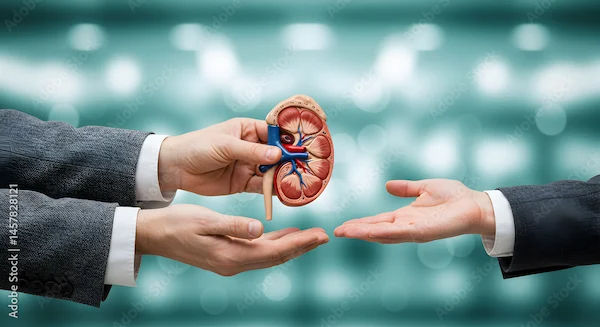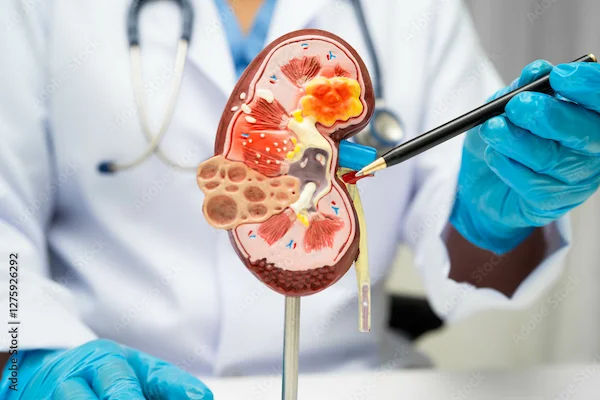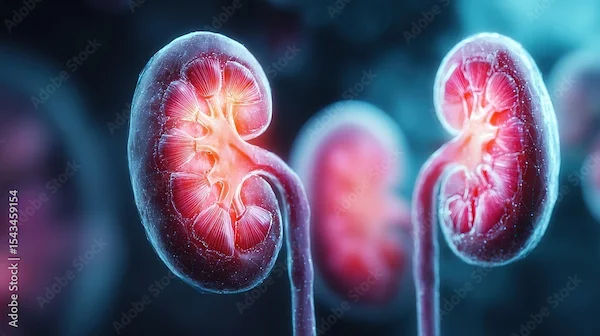Precautions For Dialysis Patients: A Comprehensive Guide
Dialysis patients need to follow essential precautions to maintain health and prevent complications. Learn about diet, infection control, fluid management, and lifestyle tips to ensure safe and effective dialysis treatment.

Written by
Last updated on 3rd Jul, 2025
Introduction
Living with kidney failure and undergoing dialysis can be challenging, but dialysis is a life-saving treatment that helps your body when your kidneys can no longer perform their essential functions. Whether you are on hemodialysis or peritoneal dialysis, it is important to follow certain precautions to stay safe and improve your quality of life. This guide will help you understand key precautions, including how to prevent infections, manage your diet, stick to your medications, and keep track of your health.
1. Infection Prevention
If you’re on dialysis, especially hemodialysis, you’re at a higher risk of getting infections because of the access points used for treatment, like arteriovenous (AV) fistulas, grafts, or catheters. To help prevent infections, follow these important steps:
Wash Your Hands: Always wash your hands with soap and water before and after touching your dialysis access site. If soap and water aren’t available, use hand sanitiser.
Keep Your Access Site Clean: Make sure your access site stays clean and dry. Follow the care instructions your doctor or nurse gave you, and try not to touch the site unless necessary.
Look for Signs of Infection: Check your access site regularly for any redness, swelling, warmth, pain, or discharge. If you notice anything unusual, call your healthcare provider right away.
Stay Up to Date on Vaccines: Make sure you get important vaccines like the flu shot, hepatitis B vaccine, and pneumonia vaccine to help protect yourself from infections.
2. Dietary Care
Eating the right foods is important for managing your kidney health and avoiding problems. Here are some simple diet tips to help you stay on track:
Limit Potassium: Too much potassium can be harmful. Avoid foods high in potassium, like bananas, oranges, potatoes, and spinach. Instead, try foods with less potassium, like apples, berries, carrots, and green beans.
Watch Phosphorus: Too much phosphorus can cause problems with your bones and heart. Cut back on foods like dairy, nuts, seeds, and whole grains. If your doctor has prescribed phosphorus binders, take them as directed to help your body handle phosphorus.
Control Fluid Intake: Drinking too much fluid can cause extra stress on your body. Stick to the amount of fluids your doctor recommends, and avoid foods with a lot of water, like soups and ice cream.
Reduce Sodium: Eating too much salt can raise your blood pressure and cause your body to hold onto extra fluid. Avoid processed foods, canned soups, salty snacks, and condiments. Use herbs and spices to add flavour instead of salt.
Get Enough Protein: Dialysis patients need more protein than others. Make sure to eat good sources of protein, like lean meats, poultry, fish, eggs, and dairy. A dietitian can help you figure out the right amount for your needs.
3. Medication Adherence
Taking your medications as prescribed is important for managing your health and preventing problems. Here’s how to stay on top of it:
Know Your Medications: Understand what each medicine is for, how much to take, and what side effects to watch for. Keep a list of all your medications and share it with your doctor or nurse.
Take Medications on Time: Stick to the schedule for your medications. Using a pill organiser or setting reminders on your phone can help you remember.
Be Careful with Over-the-counter Medications: Some common over-the-counter medicines, like pain relievers (NSAIDs), can hurt your kidneys or interfere with your dialysis when used too much.
Report Side Effects: If you notice any side effects or feel unusual in any way, let your doctor know so they can adjust your treatment if needed.
4. Regular Monitoring
Regular monitoring is important for managing kidney failure and ensuring your dialysis treatment works as it should. Here's what you need to track:
Blood Tests: Keep up with scheduled blood tests to track kidney function, electrolyte levels, and overall health. These results help your healthcare team adjust your treatment plan as needed.
Weigh Yourself: Weigh yourself daily and keep track of any changes. Rapid weight gain may signal fluid retention, while sudden weight loss may suggest poor nutrition.
Monitor Blood Pressure: Check your blood pressure regularly and note any significant changes. Both high and low blood pressure can affect your treatment and overall health.
Check Your Access Site: Always monitor your access site for signs of infection or complications. Contact your healthcare provider if you have concerns.
5. Hydration Management
Maintaining the right balance of fluids is vital for dialysis patients to avoid both dehydration and fluid overload. Here are some tips:
Follow Fluid Limits: Stick to the fluid intake limits given by your healthcare provider, including all drinks and water-rich foods.
Manage Thirst: Satisfy your thirst by sucking on ice chips, chewing gum, or using sugar-free candies. Avoid salty foods, which can make you more thirsty.
Track Your Fluids: Keep a log of your daily fluid intake and share this information with your healthcare provider to ensure you’re staying within the recommended limits.
6. Avoid Smoking and Alcohol
Both smoking and alcohol can negatively affect your health, particularly when you're on dialysis. Here's why you should avoid them:
Smoking: Smoking damages blood vessels, raises blood pressure, and can make dialysis less effective. It also increases your risk of heart disease and infections.
Alcohol: Alcohol can dehydrate you, interfere with medications, and worsen kidney function. It also raises the risk of liver disease.
7. Exercise and Physical Activity
Staying physically active is essential for overall health and well-being. Here’s how to get started safely:
Talk to Your Healthcare Provider: Before starting any new exercise routine, ask your healthcare provider for advice to ensure it’s safe for you.
Start Slowly: Begin with low-impact activities like walking, swimming, or cycling. Gradually increase the intensity as your fitness improves.
Add Strength Training: Incorporate exercises to build muscle strength, like using light weights or resistance bands.
Stay Consistent: Aim for at least 30 minutes of moderate activity most days of the week. Consistency is key for reaping the benefits of exercise.
8. Mental Health and Emotional Support
Dialysis can take a toll on your mental health, so it’s important to prioritise emotional well-being. Here are some ways to take care of yourself:
Join a Support Group: Connect with others who understand your experience by joining a support group. Sharing and listening to others can provide comfort and motivation.
Seek Professional Help: If you’re struggling with depression or anxiety, consider speaking with a counsellor or therapist. They can help you develop strategies for coping and emotional support.
Stay Connected: Spend time with family and friends. Social support is key to maintaining your mental health.
Practice Relaxation: Try relaxation techniques like deep breathing, meditation, or yoga to reduce stress and improve your mood.
Conclusion
Living with kidney failure and undergoing dialysis requires careful management and adherence to specific precautions to ensure your safety and well-being. By following these guidelines, you can better manage your condition and improve your quality of life. Remember to practice good hygiene, follow a kidney-friendly diet, take medications as prescribed, monitor your health regularly, stay hydrated, avoid smoking and alcohol, engage in regular physical activity, and seek emotional support. Always consult with your healthcare provider for personalised advice and recommendations tailored to your specific needs.
With the right steps, you can continue doing the things you love and maintain a sense of well-being despite the challenges.
Consult Top Nephrologists
Consult Top Nephrologists

Dr. Hareesha Babu K
Nephrologist
25 Years • MBBS, MD (General Medicine), DM (Nephrology),FASN, FRCP(Glasg), FRCP (Edin)
Bangalore
Kidney & Hypertension Care, Bangalore
(125+ Patients)

Dr. Tanmay Mukherjee
Nephrologist
13 Years • MBBS , MD (General medicine) , DNB (Nephrology)
Kolkata
Foresight Clinic and Diagnostic, Kolkata

D. Akshay Zalavadiya
Nephrologist
3 Years • MBBS, MD, DM Nephrology
Ahmedabad
Beacon kidney consult, Ahmedabad

Dr. Siddharth Herur
Nephrologist
4 Years • MBBS, MD General Medicine, DM Nephrology
Kurnool
Medicover hospital and Gurudatta poly clinic, Kurnool

Dr. Anantha Rao
Nephrologist
7 Years • MBBS, DNB (General Medicine), DNB (Nephrology)
Kurnool
Aakash hospital and KIMS hospital, Kurnool



.webp)
